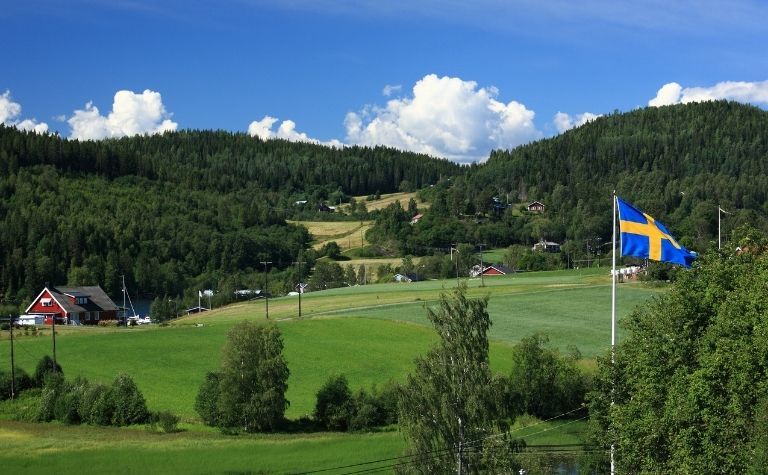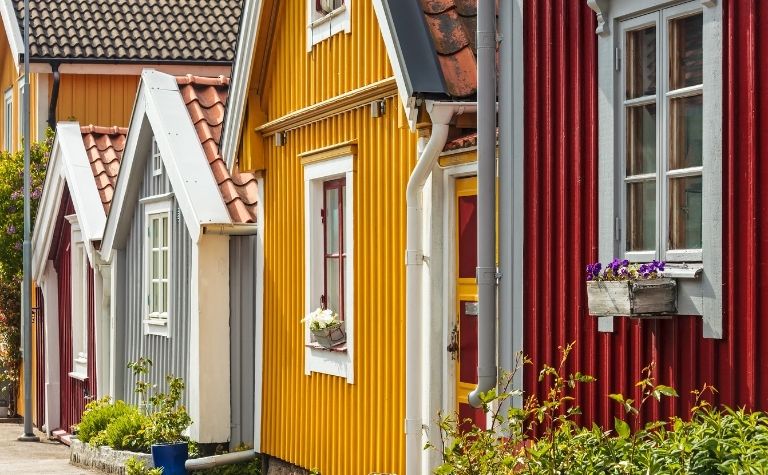In the contemporary imagination, Sweden is often viewed as an egalitarian and peaceful utopia. The stereotypical image of a Swede is of a consensus-seeking individual who avoids conflict at all costs. But is this portrayal accurate, and do Swedes really avoid conflict?
Swedes avoid conflict wherever possible. The Swedish preference for cooperation over conflict is expressed in their politics, foreign policy, and culture.
They hold the record for the longest continuous peace of any major nation in the modern era and have not gone to war for over 200 years.
The remainder of this article will take a look at the historical reasons why Swedes have developed a reputation for conflict avoidance and describe the essential features of contemporary Swedish personality that have fostered it.
Also see Was Sweden in World War 2? to learn.

Why Do Swedes Have a Reputation for Avoiding Conflict?
Swedes have a reputation for avoiding conflict because of their recent war-free record, friendly relations with neighboring countries, and history of promoting peace and reconciliation overseas.
Swedish politics and culture reinforce this reputation by encouraging consensus-seeking.
The last time Sweden went to war was in 1814 when they fought their immediate neighbor Norway.
Since then, Sweden has not fought in a war, and its 200-year record is the longest of any major nation in the modern era. [1]
Not even the historically neutral Swiss have such a long history of continuous peace.
Sweden has not seen civil war, coups, or political violence at home.
Moreover, Swedish politics are built around consensus building, and it is common to see coalitions of multiple parties at the helm of domestic affairs.
Marginal groups see no need to agitate to make their voices heard.
Another reason for domestic peace is a highly efficient bureaucracy.
Citizens expect their courts, law enforcement agencies, and legislators to mediate contentious issues impartially and effectively deliver results.
High trust in government also translates into greater confidence in their fellow citizens.
Sweden also has excellent relations with its Scandinavian neighbors. [2] Citizens of the countries that make up the Nordic Council have been able to travel passport-free since the 1960s. [3]
This was well before the European Union integrated much of western Europe into a common market.
Over the past half-century, improved regional cooperation has strengthened the cultural and economic ties between Sweden and its immediate neighbors.
Better relations with neighboring countries has reduced the risk of cross-border friction and is one of the main reasons for lasting peace in the region.
Sweden has also promoted the cause of peace and reconciliation across the world. It has largely remained unallied in the power games of international geopolitics.
Sweden has also contributed to the peacekeeping efforts of the United Nations and brokered peace talks in different conflict zones around the world.
There are a few caveats to this image of the Swedes as a conflict-avoiding people. Sweden is a major manufacturer and exporter of arms and ammunition. [4]
There is no guarantee changing geopolitical scenarios will not push Sweden into conflict where it feels the need to defend itself.
Perhaps the most questionable, even shameful, aspect of the Swedish propensity for conflict avoidance lies in incidents of the previous century.
While many countries in Europe chose sides in the Second World War, Sweden enjoyed peace. They bought their peace by permitting the Nazis to use the Swedish rail network.
Also see Why Do Swedes Sound American? to learn.

What Is the Common Swedish Temperament Like?
The common Swedish temperament is modest and reserved but liberal. Swedes are egalitarian people and do not appreciate boastfulness, extravagance, or aggression.
They value cooperation and diplomacy in interpersonal relations, domestic politics, and international relations.
Swedes are highly individualistic people. They do not judge or interfere in the affairs of strangers and expect the same treatment in return.
Because of this, they can sometimes come across as cold and distant.
Swedes make strong distinctions between public and private spaces. In public spaces and with strangers, they are usually reserved and instrumental in their exchanges.
They often engage in extended conversation only in private and with people they know well.
This traditional reserve explains why Swedes don’t talk to strangers and make great efforts not to encroach onto their personal space.
In Sweden, giving unfamiliar people space is considered polite. In the same way, getting to the heart of a conversation does not waste their time.
Swedes are also egalitarian. They value fairness and modesty and do not appreciate people who draw too much attention to themselves or are not considerate of others.
They also prefer to avoid conflict in all spheres of life, including interpersonal, domestic, and international relations.
Because of their abhorrence of conflict and aggression, Swedes are very diplomatic.
Often, it is hard to tell if a Swede is angry, as they will not directly say so.
Also see Why Does Sweden Have So Many Lakes? to learn.

What Do Swedes Value in Communication?
What Swedes value in communication is honesty and directness. In groups, they appreciate every participant getting sufficient time to air their perspective and consider interruption rude.
They prefer restrained, diplomatic, and modest speech and do not find silences awkward.
Swedes are generally restrained in public and with strangers. However, in private spaces and when speaking to friends, family, or close acquaintances, they prefer a more straightforward mode of communication.
Honest, direct speech is seen as more respectful of close bonds.
This Swedish penchant for straightforwardness is reflected in a more limited everyday vocabulary. The reasoning is that there is no need to use many words where a few will do.
By some estimates, as little as 126,000 words are adequate for everyday conversations. [5]
Topics of conversation that are avoided out of politeness in other cultures, such as politics, religion, or matters of personal choice, are not considered off-limits for Swedes.
On the other hand, engaging in superficial conversation to avoid a meaningful dialogue is considered rude.
At the same time, Swedes are also very diplomatic and will use more words than necessary to avoid offending others.
They prefer a modest and restrained style of communication that is not boastful or aggressively expressive and are not put off by intermittent silences.
In groups, Swedes favor a participatory approach. This way, each speaker gets an opportunity to share their perspective with the group.
For the same reason, interrupting a speaker mid-speech or speaking for too long when in a larger group is considered rude.
Conclusion
Swedes avoid conflict where possible, as evidenced by recent history, culture, politics, and the temperament of the average Swede.
Also see Why Does Sweden Have So Many Islands? to learn.
References:
[1] Source
[2] Source
[3] Source
[4] Source
[5] Source
